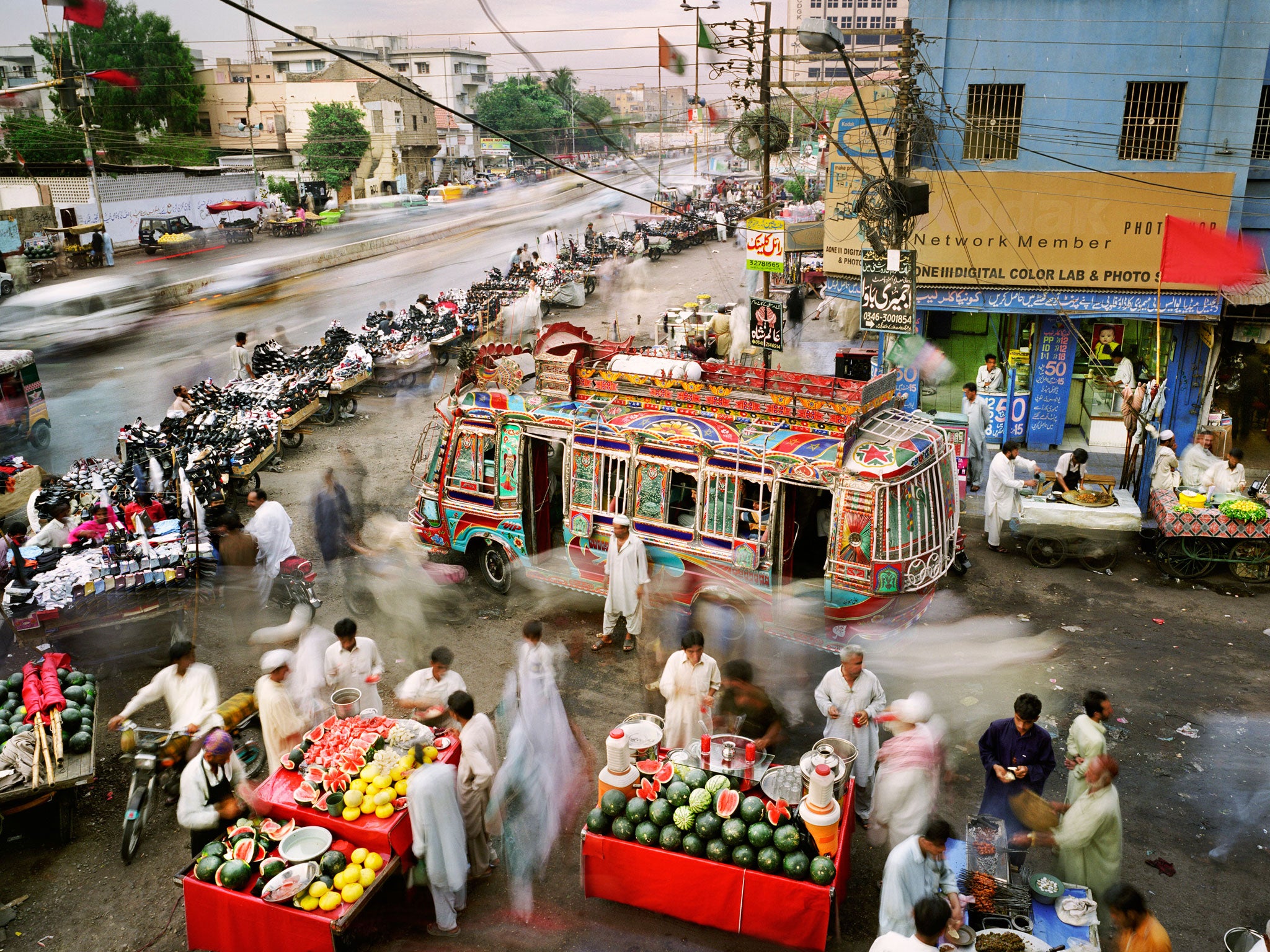Dutch photographer Martin Roemers travelled across five continents to create 'a study of the human condition'
From London to Beijing, the 53-year-old visited 22 "megacities" over eight years, to capture the everyday experience of swarming populaces crammed into small urban spaces

The market stalls of Karachi, Pakistan, are a hub of daily movement and energy – not surprising, perhaps, given that the city is one of the world's most densely populated habitats, with a population of 24 million.
According to the UN, more than half the world now lives in cities, a migration that inspired the Dutch photographer Martin Roemers to travel across five continents to create "a study of the human condition".
From London to Beijing, the 53-year-old visited 22 "megacities" over eight years, to capture the everyday experience of swarming populaces crammed into small urban spaces.
In quickly expanding cities such as Karachi, traditional street trades and ancient customs are set against backdrops of modern infrastructure, revealing our shift from countryside to city.
"The differences between the photos result from the characters of the cities," says Roemers, who himself lives in Delft, in the Netherlands. "The similarities result from the informal economies in which the inhabitants take part. For example, newcomers often end up at the edges of society, and those look the same everywhere."
Roemers enlisted locals to help him find shooting spots that had high vantage points. Using a long exposure and large-format analogue camera, Roemers was thus able to capture the streets as blurs of activity, faceless figures highlighting the anonymity that the sprawling metropolis brings.
'Metropolis' is published by Hatje Cantz, priced €65 (martin roemers.com/books.php)
Join our commenting forum
Join thought-provoking conversations, follow other Independent readers and see their replies
Comments